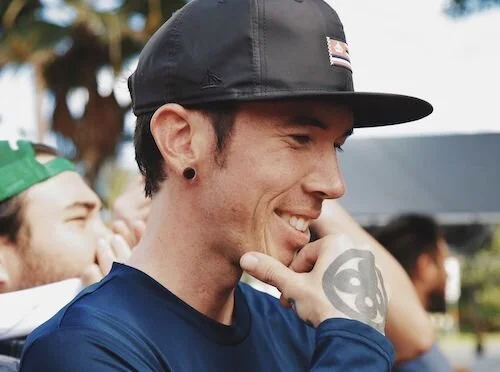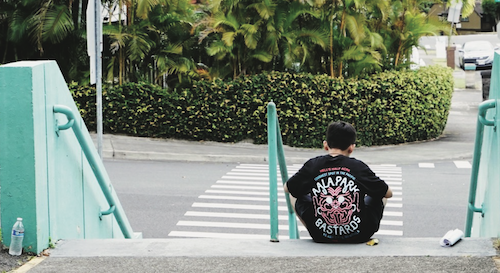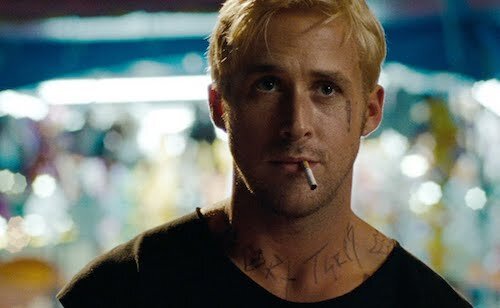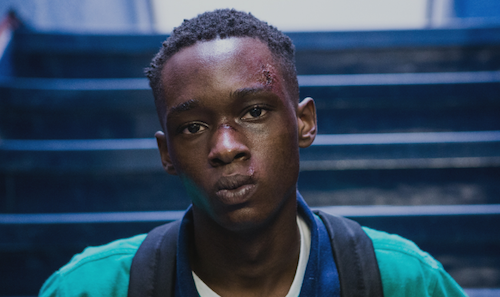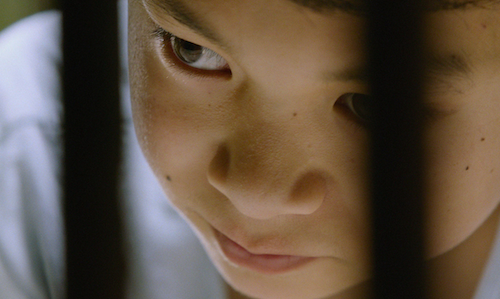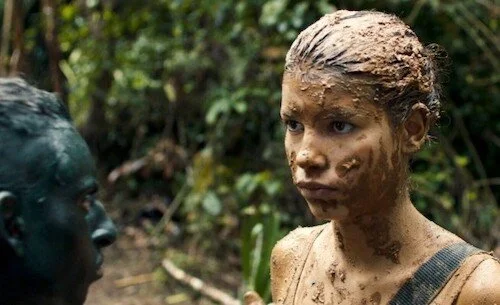Alika Maikau and Moloka'i Bound: The Affirmation of Change
Hawaiian director Alika Maikau is only getting started, and yet he is already making such major strides. He has released three shorts within three years, beginning with Keep You Float and Mauka to Makai, as well as having co-written for Tihini Grant’s Mareikura. His latest short, Moloka’i Bound, is his biggest triumph yet, having received lots of acclaim and even being accepted in Toronto’s prestigious imagineNATIVE Film and Media Arts Festival: a festival designed to promote indigenous works from all across the world. This success has lead to Moloka’i Bound getting the feature film treatment, which is currently being produced now.
With all of this great news to share, we are happy to share that Alika Maikau spoke with us about these recent triumphs, as well as the importance of all voices being heard, and the craziness that has been 2020. You can find out more about Alika Maikau through his IMDb page and his Instagram, and also see Moloka’i Bound’s IMDb page here. You can watch the trailer for Moloka’i Bound below.
Films Fatale: How did you get inspired to make Moloka’i Bound?
Alika Maikau: This whole thing germanated back when I was on a road trip with my cinematographer Chapin Hall. We were attending a film festival in New Zealand last year called Mãoriland. We both had different films in the festival. We had gotten to know each other over the course of the festival. It just so happened that they booked us the same flight back to Hawaii out of Auckland. The festival rented a car for us and we had a two day road trip up to Auckland from where the festival took place. Me and Chapin got to know each other really well over the course of that road trip. We talked about all of our influences and inspirations and how we wanted to try and translate that into work back home. Chapin asked me if I had any ideas for a film, because he had his camera equipment with him at the time. He was going to be in Hawaii for a week before heading out to L.A., so I was able to come up with some in a short period of time! (laughs) He would shoot it.
I had had this idea for a feature film called Moloka’i Bound. I thought about this scene that we could shoot, that could be a proof of concept that could also stand alone as a short; that would sort of be ideal. That’s when I wrote the scene for what would become the short film.
FF: How hard was it to flesh out the remainder of the project if you had this single scene in mind, so it worked as a short film?
AM: At the time, I hadn’t even written the feature script at all (laughs). It was just a loose idea of a concept for a feature film. I wanted to make a film about a father — after spending time in prison — trying to reconnect with his son and Hawaiian heritage in the grand scheme of things. Given that we had so little time to prep, I wanted to do something that was essentially one location, with as few actors as possible. That’s when the idea started to take shape. The other thing is I live with the lead actor [Holden Mandrial-Santos]; he’s my roommate. I knew he would be down to do something on a short notice. It all started to materialize there.
FF: It ended up leading you to imagineNATIVE. Obviously, with the film’s topic, it’s a big deal to be a part of such a celebrated indigenous film festival.
AM: Yeah! We’ve been so overwhelmed by the response, and to get into imagineNATIVE was a big deal for us. I had applied with a short film the film prior that didn’t get in. To have our world premiere there was an incredibly thrilling experience.
FF: Two years ago, you said you applied already, but you got in last year; could you imagine if these submissions were moved forward, with your award worthy short clashing with the state of the world in 2020?
AM: Oh my God. Yeah.
FF: The pandemic has been a wrench in so many industries’ mechanisms, including film industries.
AM: That’s something I think about a lot. We were extremely fortunate to get into the festival when we did. I was able to actually attend the festival with two other Hawaiian filmmakers who also had a film in the festival. We had an incredible festival experience. It was my first time in Toronto. I got to go to a few more festivals as well with the film, before everything shut down. I’m incredibly grateful for the experience and the opportunity to do so, especially since I have a lot of friends who are now premiering their films, and, as you said, they’re primarily virtual premieres, so it’s a different experience for them. (laughs) It’s tough!
FF: Going back to imagineNATIVE and your ability to collaborate with fellow indigenous filmmakers, as great as these celebrations are, the film world as a whole still has a lot of improvement with how it represents all voices. What work do you believe can help keep improving these lapses?
AM: For starters, last year was a huge year for imagineNATIVE. They finally received their Oscar accreditation. I think stuff like that goes a long way towards legitimizing the work of otherwise marginalized voices. As you said, there’s definitely a lot more work to be done. Just in the wake of this summer, this racial reckoning that America’s dealing with, clearly… In every industry, there’s work to be done in that regard. It feels like this industry’s having a moment of self reflection and trying to be honest with itself, and the areas that it has clearly overlooked for far too long. I would hope that we’re trending in the right direction, and this isn’t some sort of a fad, where [the industry’s] trying to be more inclusive at the moment, just to appease the situation. I hope this is a sustainable thing.
FF: I think the main difference is we’re many generations ahead now, as opposed to earlier times in the film industry where it was appeasing the masses for a little while just to hush them up. Now, many previously neglected voices are making up large portions of the industry and various academies. Perhaps we’re heading in the right direction, regarding this tonal shift.
AM: Hopefully! We’ll have to see what it looks like a year from now, or five years from now. It feels like things are trending in the right direction. Let’s hope we maintain that trajectory.
FF: Going back to Moloka’i Bound, how hard is it to capture an entire lifetime in such a short amount of time?
AM: It’s difficult, but it’s such an interesting film, because it’s an exercise in filmmaking for us, in terms of trying to be as efficient as possible in terms of the storytelling, the economy of dialogue, dynamics, like… how do we extract the most out of this moment, in a way that serves the story? It’s the shortest film I’ve ever done; prior to this, my short film [Mauka to Makai] was twenty five minutes long. It wasn’t something I was accustomed to, necessarily, but I learned a lot from trying to tell this story with these constraints. I genuinely feel it’s made me a better filmmaker, and I want to hopefully take the lessons that we learned in this short, and apply them to the feature, which we’re trying to expand into next year. We’ll see how that goes.
FF: How do you go about elongating what you have here into a feature?
AM: We finished the short film, and then maybe two or three months after we locked the film, I sat down to try to write the feature script out. That was in the fall of last year. Since then, we’ve finalized the script and I’ve been through many drafts at this point, and had many other people try to help me with the script and take a look at it.
To go back to what you said, we’re trying to maintain what worked in the short. This film will still be centred around my roommate; Moloka’i Bound was our second collaboration together. It was also his second time ever acting on screen! I feel like he gets stronger every time we do something. I’m fully confident in him being able to carry a feature on his shoulders, because I think he taps into something that’s very natural, and very much in line with the emotions that we’re trying to tap into.
FF: It’s great that you can see even more in Mandrial-Santos, which confirms that he’s a perfect fit for the feature film; he has more to offer, and that’s more substance for the longer version of your short.
AM: I hope so! I’m glad you feel that way.
FF: We like to send interviews off with the most basic question, based on why we are all cinephiles. What are your top films of all time, and why?
AM: This is tough!
The Place Beyond the Pines
AM: Off the top of my head, The Place Beyond the Pines. Derek Cianfrance's been one of my favourite directors since Blue Valentine. The Place Beyond the Pines… I see a lot of overlap between what he’s trying to do, and what we’re trying to do with this film, so it's actually serving as a huge reference for us.
Moonlight
AM: Moonlight, of course, had a profound impact on me. (laughs) this is tough!
Ainu Mosir
AM: I've been watching a lot of films as a part of the Hawaii International Film Festival, that's currently going on. I would recommend one I just saw called Ainu Mosir, which is about the indigenous people in Japan trying to revive this ancient cultural tradition. It starts out like a quaint coming-of-age tale, but it actually builds to this provocative crescendo. I just watched that yesterday and that’s really on my mind. I would hope people could seek that out when it comes to future festivals and theatres.
Monos
AM: Monos was a film I recently [watched]
FF: Very underrated!
AM: Oh my God, yeah! I love that movie. That’s one of those movies where I just don’t understand how the fuck they made this movie! (laughs) I can’t imagine how gruelling this shoot was. It’s so visceral and raw, but controlled. That one blew me away. I’ll end there (laughs).
FF: Shout out to that Mica Levi score. It’s too damn good to not discuss! (laughs)
AM: Justice for Mica Levi! I don’t understand why her scores aren’t always nominated.
Andreas Babiolakis has a Masters degree in Film and Photography Preservation and Collections Management from Ryerson University, as well as a Bachelors degree in Cinema Studies from York University. His favourite times of year are the Criterion Collection flash sales and the annual Toronto International Film Festival.

